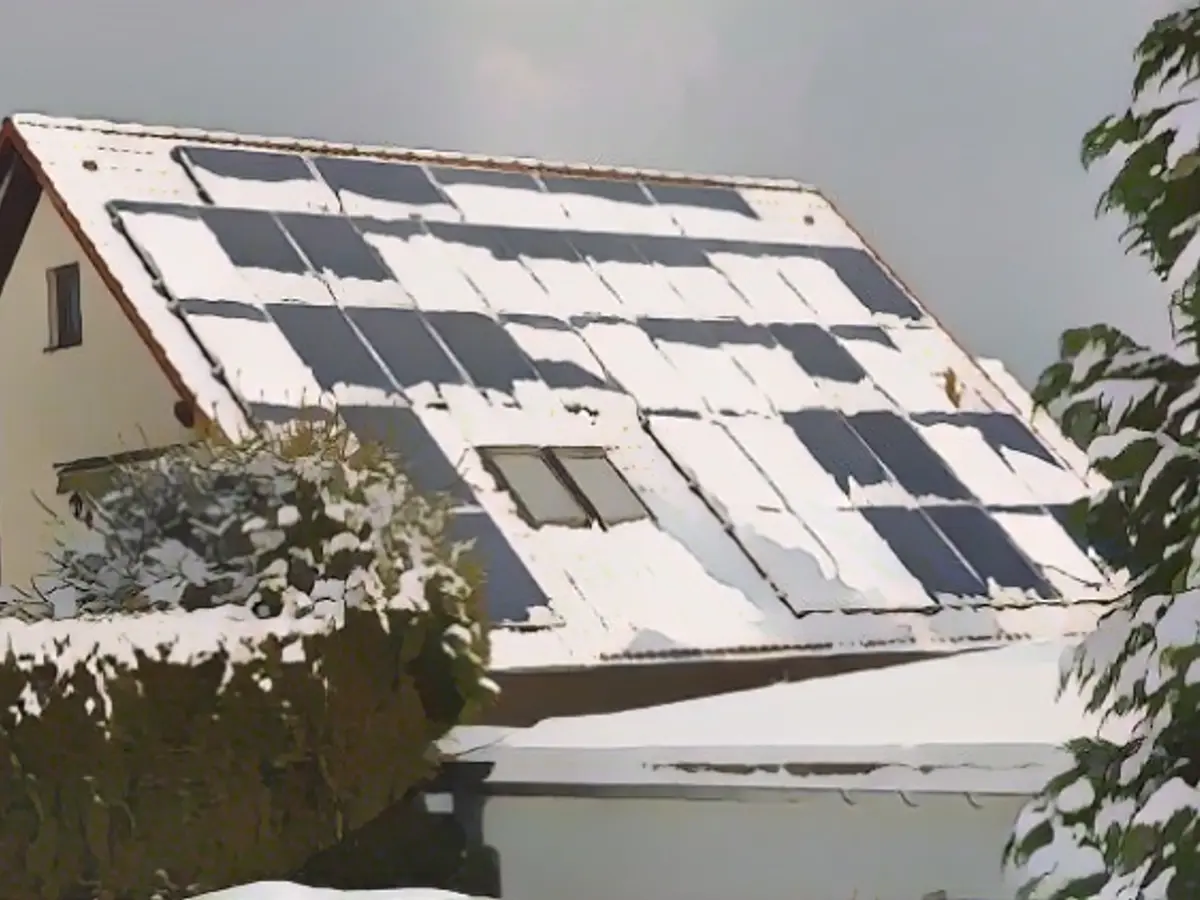Winter's Chill and Solar Power: Navigating Efficiently
Are you pondering the question, "Does winter affect my solar energy system's effectiveness?" if you're a solar panel owner or are planning to invest in one? A solar energy expert shares valuable insights on how to safeguard your system during the colder months and optimize its performance.
Contrary to popular belief, the cold is not an adversary to solar panels; in fact, they work more efficiently due to their semiconductor technology as temperatures decrease. So, what should you expect in terms of performance change during the winter months?
The Winter Effects on Solar Panel Performance
While Germany's winters often boast fewer hours of sunlight, fog, clouds, and cold temperatures, solar panels remain unaffected by the cold. Instead, they generally perform better in colder weather.
Yet, the winter months are characterized by shorter days, a lower sun angle, and the sun's flatter incidence angle, which reduces the overall sunlight impact. Despite these challenges, solar systems continue to produce electricity, albeit at reduced levels. Peter Knuth, solar energy expert and Managing Director of solar specialist chain Enerix, explains, "Even in diffuse light, solar systems produce electricity, just less."
Maximizing Your Solar System's Efficiency in Winter
To extract maximum benefit from your solar system during winter, align your electricity consumption with the production rate. Utilize apps or energy management systems developed by manufacturers to automatically manage consumption and disburse it throughout the day. This approach aids in minimizing energy losses when the electricity is generated at the same time as its consumption.
Snowy Conditions and Solar Panels: A Delicate Balance
When snow covers the system, it tends to disrupt solar energy generation. However, incidents with significant snow buildup are rare due to steep roofs or natural snow melting and sliding off the panels. As an added bonus, the snow slide usually takes dirt along with it, ensuring the panels remain notably clean, and the summer yield remains optimized.
Electricity Storage System and Winter Benefits
While electricity storage systems are not particularly beneficial in winter due to limited charging, they can supply additional value throughout the year with optimized solar panel performance.
Storing Summer-generated Energy for Winter: A Novel Approach
Regrettably, traditional home storage units with storage capacities of 10 kilowatt hours are not designed to store solar energy generated in summer for winter use. To achieve such goals, you'd need a substantial storage system or a completely reimagined storage technology.
What Should Solar System Operators Keep an Eye on?
In essence, solar system operators do not need to winterize or reactivate their systems for spring. Regular visual inspections of the module arrays should be performed after winter to ensure proper functionality, especially following significant snowfall.
In conclusion, while solar systems experience a decline in production in winter, they still contribute significantly to electricity requirements. Consider designing your solar system with an adequate roof area to obtain a worthy portion of your energy needs during the winter months.
Sources:
Additional Insights for Optimal Solar Panel Efficiency in Winter
- Temperature Effects:
- Cold efficiency boost: Solar panels perform better when not overheated, as their semiconductor materials are more efficient. In certain conditions, each degree Celsius drop in temperature results in a 0.5% increase in efficiency.
- Heat reduction: High temperatures can diminish the efficiency of solar panels, but cold temperatures boost performance.
- Sunlight and Angle:
- Shorter daylight hours: Although the available sunlight decreases during winter, the energy captured during peak hours is still highly efficient.
- Sun angle: The sun is lower in the winter sky, which means less direct sunlight reaches the panels. However, proper installation angles with optimal exposure to sunlight can counteract this issue.
- Snow and Obstructions:
- Snow build-up: Snow can temporarily obstruct sunlight, but modern solar panels are usually designed to shed snow through their angled installation and smooth glass surfaces. In the event of significant snowfall, gently remove the snow with a soft brush to prevent damage.
- Seasonal Variations:
- Net metering: Solar systems are designed to maximize performance throughout the entire year. Excess solar energy produced in spring and summer can offset the decrease in energy production during winter, thanks to net metering programs.
- Energy storage technology: Although traditional energy storage systems have limited capability for winter storage, alternative storage technologies, such as pumped hydro storage and battery energy storage systems, can achieve year-round efficiency.








